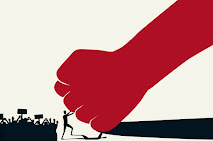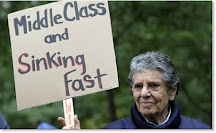Today, economists and political scientists are looking at the strain that climate change, rising prices and taxes, population migration, aging populations, crumbling infrastructures, rising public and private debt, public apathy, and failing school systems as symptoms of an increasingly unstable United States and Western Europe. Even China, India, and other nations along the Pacific Rim are seeing cracks in their economies as monies are diverted more and more to critical services.
The gap in quality of life between the top 20% and the remaining 80% has grown along every measurable statistic for the last 30 years. The cost of an average house has risen approximately 817% between 1970 and 2024, which is higher than the average rate of inflation (4.19% for housing compared to an overall inflation rate of 3.94%), All items, excluding food, rose 627% between 1967 and 2024.
Using data from the Center For Economic and Policy Research (CEPR), between February 2020 and November 2023, average wages rose 19.4%. For individuals in production and non-supervisory roles, 21.9%, while for high demand non-technical positions such as hotel and restaurant workers, their wage shot up 31.6% (note that these jobs represent 80% of the job market). While an average increase in wages of 19.4% is pretty good, the Consumer Price Index, which measures the overall change of prices, went up 18.8% for the same period.
Starting with the COVID pandemic in 2020 and continuing through November of the following year, the price of food jumped 24.7%, exceeding the average growth of wages by 5.3%. So, if you're seeing the content of your grocery cart getting smaller while the amount at the checkout counter getting higher, it's not your imagination or because you're unnecessarily splurging. For instance, the price of a loaf of bread has increased 28.8% since the pandemic while the cost of eggs have jumped 24.7%.As an aside, most Americans tend to struggle with their weight. Americans are notoriously overweight according to the National Institutes of Health (NIH), which say that one in three Americans are over their optimal weight. Just over one in three men (or about 34.1%) are considered obese while about one in four women (27.5%) are "chubby" while 42.4% of both genders are considered seriously overweight. This, of course, is part of the reason for the explosion in diabetes and heart disease.
While some individuals are overweight due to genetic or other medical conditions, most are tubby due to their lifestyle. One common recommendation from physicians to deal with our weight problem is a combination of regular exercise and adopting a healthy diet. However, the NIH reports that the cost of many diet suggested foods, such as vegetables, fruits, and oils, have risen in price by an average of 17.9% since the pandemic. Ironically, Unhealthy foods have seen an increase in price of just 9%! The single exception was the price of fast food, which rose 14.7% between 2019 - 2022. It should be mentioned too that since 2000, the cost of medical care, including prescriptions, increased by 121.3%.
Based on data from the United States Department of Agriculture (USDA), the price of fruits increased 9.5% between 2021 and 2022 while the cost of fresh veggies rose by 7.9% over the same period. Even the cost of eating out has jumped in price. On average, restaurant food prices have risen 7.1%. Of course getting to and from the grocery store, local eatery, work or just about anywhere else requires a vehicle of some sort. So, what about the cost of gas?
Under President Donald Trump, the average price of gasoline ranged from a high of $2.81 a gallon in 2018 to a low of 2.26 in 2020 (equaling President Obama's low in 2016). Under President Joe Biden, gas was $3.10 a gallon for regular in 2021 and rose to a high of $4.06 for a gallon in 2022. This is higher than the three previous presidents, Trump, Obama, and George W. Bush. However, in looking at the broader picture, from 2020 through the end of 2023, gas prices have risen by a astonishing 30.4%, thus outpacing wage growth for all but a few.Despite the increase the cost of living for practically everything, not everyone is feeling the pinch. According to a recent study, conducted on behalf of Bank of America in 2024, roughly 30% of American households are living paycheck to paycheck (a similar study reported by CNN put that percentage at 35%). Another 20% or so percent can't afford to miss anymore than one paycheck before their financial house of cards begin to fold.
What's meant by the expression "living paycheck to paycheck"? According to the Bank of America study, living "paycheck to paycheck" means spending 90% or more of your income strictly on necessities such as rent/house payments, food, utilities, or medical bills. 27% of all Americans have no money in savings. 27% of those over 50 years of age are in the same boat. On top of that, 40% of Americans have less than $1000 set aside for emergencies according to the American Bankers Association. Of that, 49% have $500 or less available while 36% said they have just $100 for emergencies (and yet, we can afford to send $64.1 billion dollars to prop up the Zelensky regime in Ukraine to fight a war that we encouraged).
So, while the average American struggles to keep a food on the table and roof over their head (13.7% of Americans are food insecure while 14% of Americans have experienced homelessness at some point), the federal government lets approximately $92 billion dollars in corporate welfare annually slid by. Corporate welfare includes tax credits, give backs, preferable regulatory treatment, no bid contracts and automatic contract renewals, debt write-offs, deep discounts, bailouts, low or no interest loans, public grants, public-private partnerships (public money financed ventures), subsidies, and more.
From 1980 through 2021, the level of income for the Top 1% rose by 574%. For the Bottom 20%, it was just a paltry 31%. For the Top 0.01%, their wealth grew 832%. The Top 1%---about 12,000 households--- are 139 times richer the Bottom 20%. According to the Organization of Economic Co-Operative Development (OECD), a international economic and social policy forum, the United States has one of worse levels of income inequality among its 100 nation members.
In 1971, 61% of American families made up the Middle Class. Today, that percentage ranges from 46% to 55% and declining. 50 million Americans now fall below the poverty threshold, and yet the federal government is doing little to stop the millions of illegal immigrants, the majority of whom falling into the poverty category, into the United States. Of course, we can't forget that women, on average, still earn just 82% of what men earn despite being mandated by federal legislation.One other factor to look at is the wage inequality between CEOs and their employees. In 1965, the average CEO made roughly 21 times that of their employees, which sounds reasonable. As of 2023, that percentage is 290 times more than their employees (there are 58 companies where that ratio is 1000 to one).. To put it another way, between 1978 and 2023, the pay of the average worker (wage and benefits) rose by 24%. Over that same time period, pay and benefits for CEOs and senior officers went up 1085%. The median pay for a CEO in 2023 was $16.3 million dollars according to a report published by the Associated Press (the data was comprised by Equilar).
Can the United States continue with this level of income inequality? Ever since the decline of organized labor in the late 1950's, the income ratio between the working class and corporate leadership has been expanding, in part because the composition of their compensation package has changed to include more stock options and performance incentives.
Meanwhile, similar types of incentives for employees have been reduced or cut, not to mention wage and/or benefits through so-called "voluntary give backs" out of fear that their jobs would be eliminated or the facility closed and sent overseas. Is this cost cutting measures to protect the business's profitability or merely a form of extortion?
Since 1967, the Middle Class has been on a downward spiral, nearly matching the decline in public union membership. This decline of the union rank and file has meant a decline of union and non-union bargaining power and political clout which by extension, has directly affected the Middle Class. A strong working class, union or not, tends to mean a vibrant and financially healthy Middle Class.
As mentioned at the beginning of this article, economic instability, coupled with public apathy, demagoguery and a well educated citizenry are a greater factor in the fall of democracies as well as empires, second only to severe and sustained climate events, than all other reasons. We have those in spades.
Right now, we're facing not only extreme income inequality, but a strain on the economic elasticity of our social safety net, made all the worse by an defacto invasion, albeit non-military (at least at this point) of hoards of poor, largely poorly educated people who are interestedly solely in economic opportunities with no desire to contribute to their new homeland .Distrust in the government and media are at all time highs and have been that way for decades. Mediocrity at all levels of society, especially politics, are accepted as the norm. Excellence is often mocked if not actively discouraged. Herd mentality is the rule.
The good news to all this is that there's a growing resistance to the ruling Status Quo. People are walking away from the Corporate imposed partisanship. People are not just questioning so-called "authority", they're challenging it. The scripted narrative is no longer accepted. 69% of the public has little or no trust in the corporate media.
Increasingly, we're waking up to being played by the ruling class. The approval rating of Congress is laughable 17% We're refusing to accept the artificial divisions they want us to play. It's time we stop playing by their rules and start working to build a society which can benefit everyone. Not by mandating equal outcomes, but by ensuring equal opportunities. We need a society that our Founding Fathers would be proud of.
Thank you for reading "Another Opinion", the Op/Ed blog page for the "militant middle". Here at "A/O" we truly value our readers. At A/O we seek the facts as they exist, not partisan talking points. We hope you found our articles informative and engaging. Comments are welcome, provided they are not vulgar, insulting or demeaning. Another Opinion is offered without charge and is directed toward all independent and free thinking individuals. We do ask, however, that you be sure to "like" us on whatever site you found us on in order to keep our articles available for others, and that you please pass our post along. Below you will find links to the sources we used in writing this article. Thank you.
Average Gas Prices Under The Past Four Presidents
Wages and Prices: Who Is Keeping Up with What?
Nearly Half Have less than $500 in Savings
Survey: One in Four Americans Have Less than $1000 in Savings
The typical CEO makes nearly 200 times more than their workers










